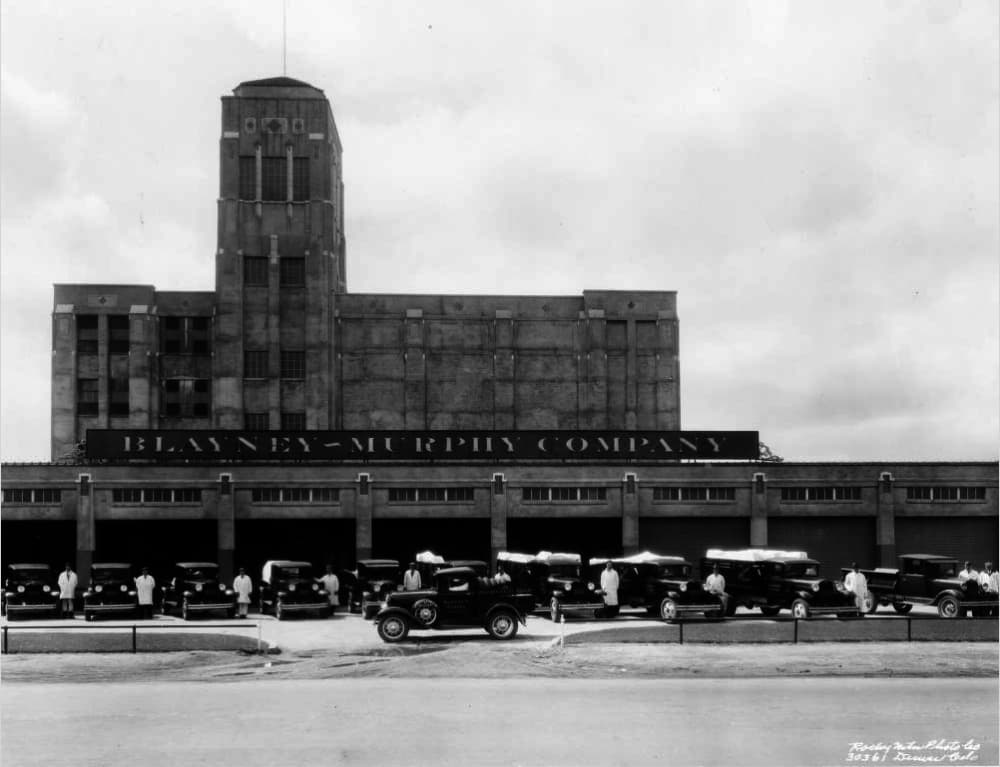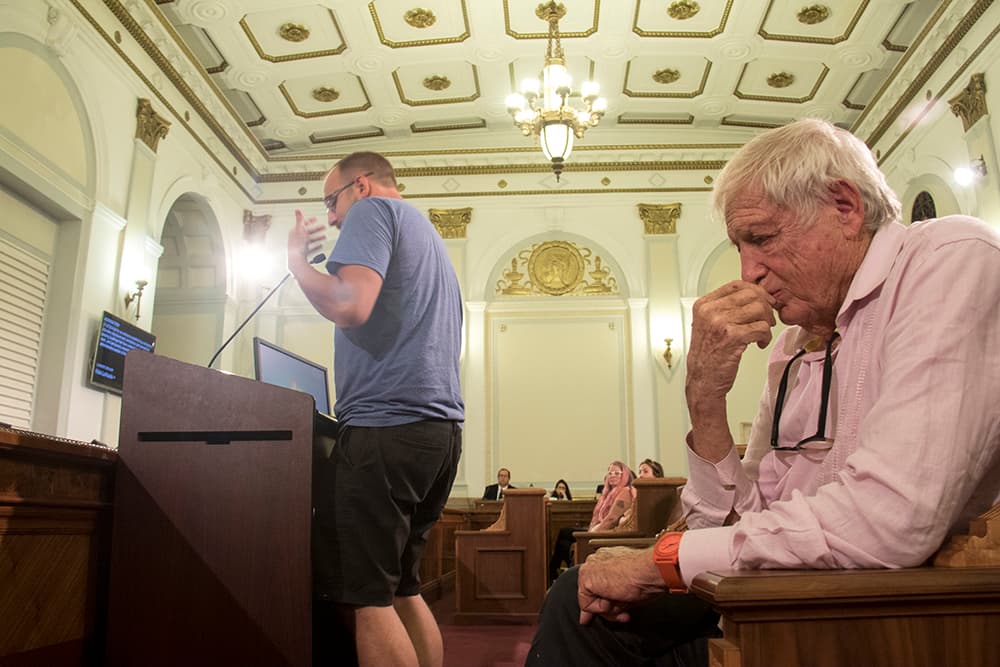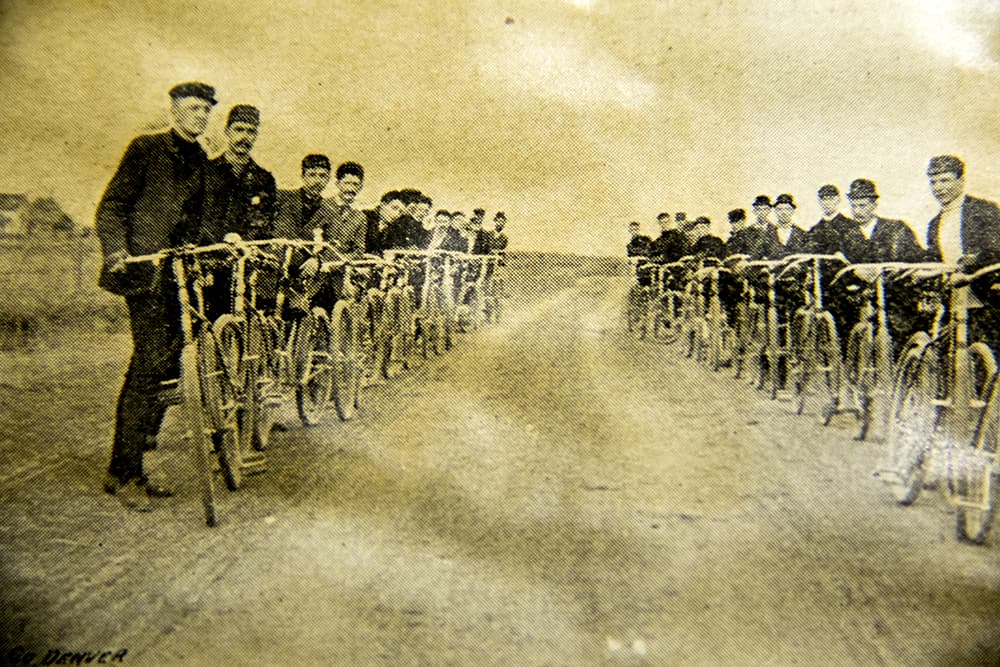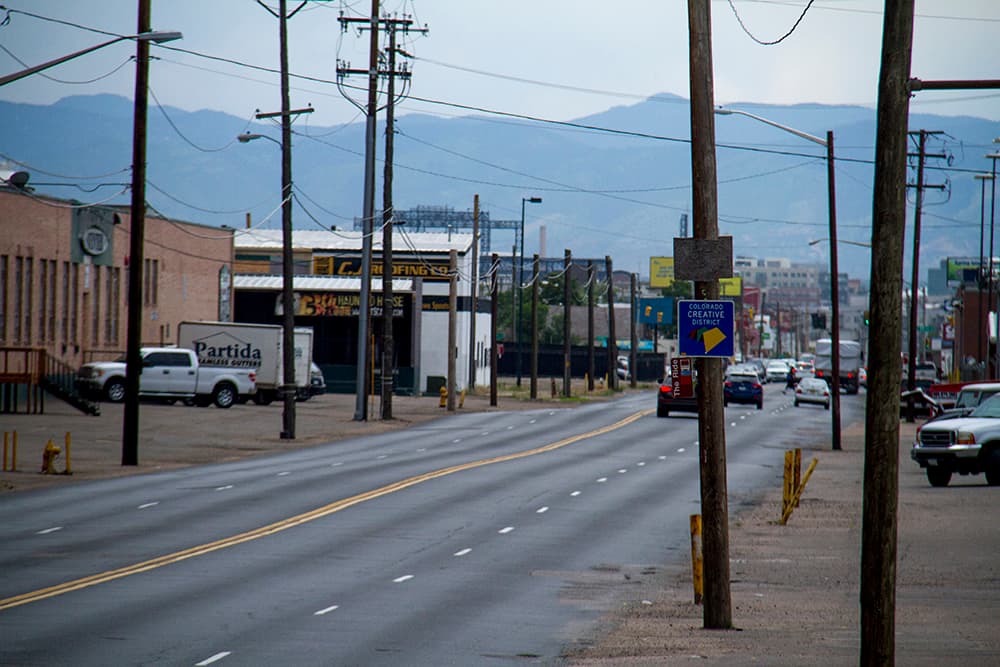
Mickey Zeppelin, the developer credited with some of the first major modern projects in Lower Downtown and the River North district, wants to keep Brighton Boulevard's name the same.
There has been talk for months now about renaming Brighton Boulevard to Broadway North or North Broadway. The conversation's gotten serious enough that the River North Art District plans to hold a community meeting about the idea sometime this fall.
Any actual decision would go to the people who own property on the boulevard -- and it has become a flashpoint in the larger debate about the future of River North. While some have argued that "Broadway" could be an attractive new identity, Zeppelin is one of the most prominent critics of the idea.
"This is just the point of reference in this larger conversation we’re having about what type of city we’re going to have," he said in an interview with Denverite. He believes that his and others' original vision for "River North" is under threat from generic architecture and a lack of respect for its historic character, he said.
"The current effort to change the Brighton Boulevard name to Broadway is to gentrify the RiNo area," he wrote in an email to Denverite.
Asked to clarify, he said that he was defining "gentrification" as the dilution of something unique into something generic, rather than the more common definition, which is the specific displacement of people with low incomes.

Zeppelin, who is the father of developer Kyle Zeppelin, traces a long personal history on Brighton Boulevard, including his father's work as a farm supplies vendor in the old Denargo City Market. The market, whhose land is being redeveloped now as a sprawling apartment cluster, was a destination route for farms in Brighton, Fort Lupton and beyond.
In fact, this stretch of Brighton was known as Wewatta Street until the late 1920s, according to city documents. It once was home to residential communities, but they were subsumed in time by mills, meat packers, bakeries and other agricultural support industries.

The Zeppelins were among the first to see the area's potential for redevelopment, buying the site of their Taxi campus back in 2000. The Zeppelins also are well known for The Source, an upscale marketplace built inside a hulking brick foundry. They've proven willing to jump into controversial city issues, with Kyle Zeppelin playing a prominent role in recent efforts to stop the Interstate 70 expansion.
Now, Mickey Zeppelin is sounding the alarm on what he perceives as the loss of River North's history.
"A guiding principle of the RiNo Plan was to maintain the historic character of the area –- and Brighton Boulevard was the authentic passage and the street for the past 15 years has been identified as the art and innovation area of the City," he wrote to Denverite.
He argues that much of the area's "original character has been eradicated," thanks largely to "generic design" and a failure to recognize the area's historic character.
"They don’t really reflect any of the character of the area - just the scale, the feel," he said in an interview. "Brighton Boulevard has become taken over by these large monoliths."
And with its "authenticity" eroding, he said, a name change is the last thing the district needs.
Meanwhile, another developer has emerged as a vocal supporter for the change of names.
“It’s a national destination point, and Broadway’s an iconic name — a compelling, iconic name," developer Bernard Hurley told Denverite earlier this month, arguing that a new name could unite RiNo with the rest of Denver while highlighting the tens of millions of dollars the city has spent on new infrastructure along the burgeoning strip.
Jamie Licko, president of the RiNo Art District, has said that the quasi-governmental body will remain neutral and facilitate a community conversation about the idea.
The city administration also has remained neutral on the topic. "The city will support the community decision on this topic," wrote Leesly León, spokeswoman for the mayor's North Denver Cornerstone Collaborative, "whether it is for or against renaming Brighton Boulevard."
As always, we welcome your thoughts.











